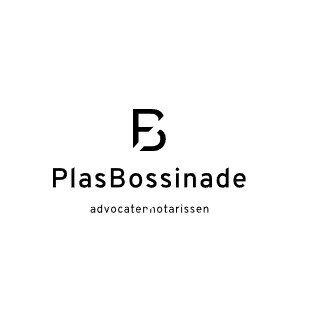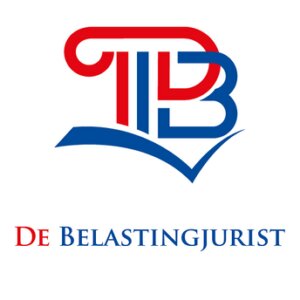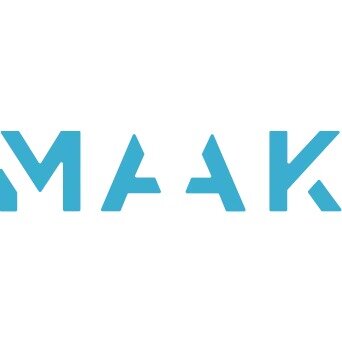Best Public-Private Partnerships (PPP) Lawyers in Netherlands
Share your needs with us, get contacted by law firms.
Free. Takes 2 min.
Or refine your search by selecting a city:
List of the best lawyers in Netherlands
About Public-Private Partnerships (PPP) Law in Netherlands
Public-Private Partnerships, commonly known as PPPs, are collaborative agreements between public sector bodies and private sector entities. In the Netherlands, PPPs are designed to deliver public infrastructure, such as roads, schools, hospitals, and utilities. These partnerships combine public sector oversight with private sector efficiencies, sharing both the risks and rewards of large-scale projects. Dutch PPP law establishes a framework for how these collaborations should be initiated, structured, and managed to ensure transparency, value for money, and public benefit.
Why You May Need a Lawyer
Navigating a Public-Private Partnership can be complex, involving multi-layered contracts, regulatory obligations, and various stakeholders. People and organizations may need legal assistance in the following situations:
- Developing or reviewing PPP agreements and contracts
- Participating in procurement processes, such as tenders or concession bids
- Understanding regulatory compliance specific to PPP projects
- Negotiating project finance terms or risk allocation
- Resolving disputes between public and private partners
- Addressing issues related to land acquisition or environmental permits
- Drafting amendments to existing partnerships
Due to the significant investment and the long-term nature of most PPPs, professional legal guidance is essential to safeguard interests, limit liability, and ensure successful partnership outcomes.
Local Laws Overview
The Netherlands provides a clear legal and regulatory structure for PPPs to ensure accountability and public interest. Key aspects include:
- European Union Procurement Directives - Dutch PPP contracts must comply with EU rules on public procurement and concessions, ensuring a fair and transparent selection process.
- Public Works and Procurement Laws - Specialized national laws govern public project execution, outlining the roles of government entities and private parties.
- Risk Sharing and Payment Mechanisms - Legal agreements often specify mechanisms like availability payments, usage-based payments, or direct subsidies to distribute financial risk.
- Contractual Models - The Netherlands frequently employs models like Design-Build-Finance-Maintain, in which the private partner designs, finances, builds, and maintains the infrastructure over a defined concession period.
- Dispute Resolution - Dutch law encourages alternative dispute resolution, such as mediation or arbitration, before court proceedings.
- Public Oversight - Government special offices monitor compliance and evaluate project outcomes to ensure public welfare.
Understanding these legal frameworks is critical to aligning objectives and fulfilling the regulatory obligations of all parties involved in a PPP.
Frequently Asked Questions
What is a Public-Private Partnership in the Netherlands?
A Public-Private Partnership in the Netherlands is a cooperative arrangement between public authorities and private companies to develop, finance, construct, operate, or maintain public infrastructure or services under legally binding agreements.
Are PPPs common in the Netherlands?
Yes. The Netherlands actively promotes PPPs, especially for road networks, public transportation, schools, and hospitals. The country has a solid track record of using PPPs for both large-scale and regional infrastructure projects.
What are the most popular PPP models in the Netherlands?
The most popular models include Design-Build-Finance-Maintain (DBFM) and Design-Build-Finance-Maintain-Operate (DBFMO), often structured as long-term concessions.
How are PPP contracts awarded?
Contracts are usually awarded through an open and competitive public procurement process, adhering to EU and Dutch procurement regulations to ensure transparency and equal treatment of bidders.
What legal risks should private partners be aware of?
Private partners must consider risks related to project financing, regulatory compliance, construction delays, cost overruns, and potential changes in law or political priorities.
Can foreign companies participate in Dutch PPP projects?
Yes, foreign companies can participate, provided they meet the qualifications and requirements set by Dutch and EU procurement law.
Is public consultation required in PPP projects?
For most large-scale projects, public consultation is a legal requirement to assess potential impacts and gather stakeholder input during the planning stage.
How are disputes resolved in PPP projects?
Most contracts include provisions for alternative dispute resolution methods, such as mediation or arbitration, which are preferred over litigation in Dutch courts.
What is the typical duration of a PPP agreement?
PPP agreements typically last between 15 and 30 years, depending on the project size, investment recovery period, and terms negotiated between partners.
How can a lawyer assist with a PPP project?
Lawyers can help with contract drafting and negotiation, compliance reviews, risk management strategies, dispute resolution, permitting, and ongoing legal oversight throughout the partnership lifecycle.
Additional Resources
Several organizations and agencies can provide further support and information on PPPs in the Netherlands:
- Netherlands Enterprise Agency (RVO) - Offers project support and information for PPP stakeholders
- Ministry of Infrastructure and Water Management - Oversees major infrastructure PPP projects
- Ministry of Finance - Responsible for public procurement and public spending oversight
- European PPP Expertise Centre (EPEC) - Provides guidance and best practice for PPPs across the EU, including the Netherlands
- Local legal associations and chambers of commerce specializing in PPP law
Next Steps
If you are considering getting involved in a Public-Private Partnership in the Netherlands or need advice on an existing PPP project, follow these steps:
- Identify the specific legal issues or objectives related to your PPP project
- Collect relevant documentation such as project plans, procurement notices, and any existing agreements
- Consult with a specialized PPP lawyer or legal team who understands Dutch and EU regulatory frameworks
- Prepare questions and priorities to address during your legal consultation
- Engage in clear communications and seek transparent advice to ensure full compliance and protection of your interests
Taking prompt and informed action with the right legal support can make a significant difference in the success of your Public-Private Partnership project in the Netherlands.
Lawzana helps you find the best lawyers and law firms in Netherlands through a curated and pre-screened list of qualified legal professionals. Our platform offers rankings and detailed profiles of attorneys and law firms, allowing you to compare based on practice areas, including Public-Private Partnerships (PPP), experience, and client feedback.
Each profile includes a description of the firm's areas of practice, client reviews, team members and partners, year of establishment, spoken languages, office locations, contact information, social media presence, and any published articles or resources. Most firms on our platform speak English and are experienced in both local and international legal matters.
Get a quote from top-rated law firms in Netherlands — quickly, securely, and without unnecessary hassle.
Disclaimer:
The information provided on this page is for general informational purposes only and does not constitute legal advice. While we strive to ensure the accuracy and relevance of the content, legal information may change over time, and interpretations of the law can vary. You should always consult with a qualified legal professional for advice specific to your situation.
We disclaim all liability for actions taken or not taken based on the content of this page. If you believe any information is incorrect or outdated, please contact us, and we will review and update it where appropriate.
Browse public-private partnerships (ppp) law firms by city in Netherlands
Refine your search by selecting a city.















